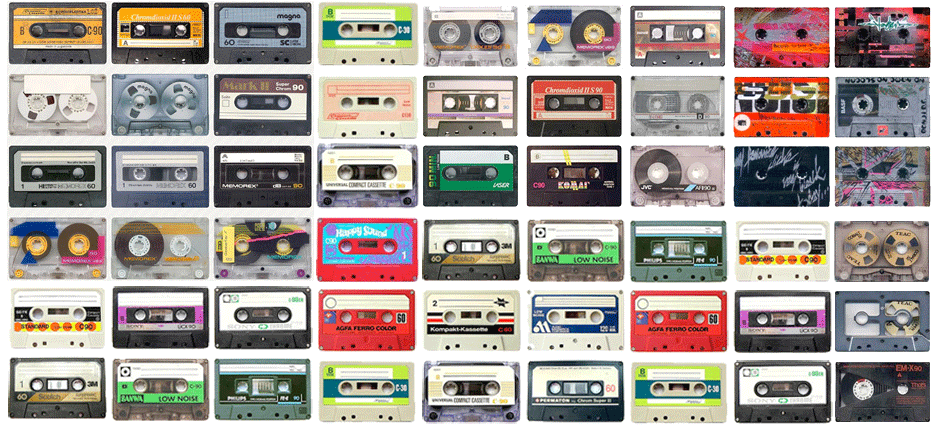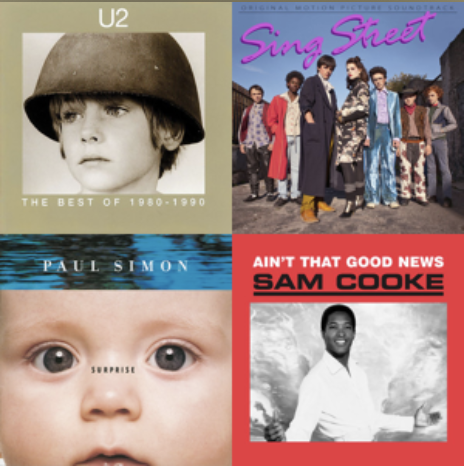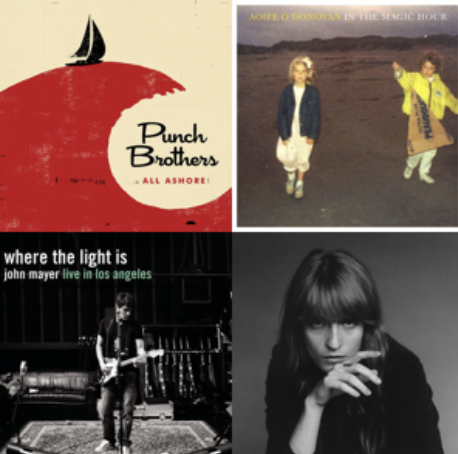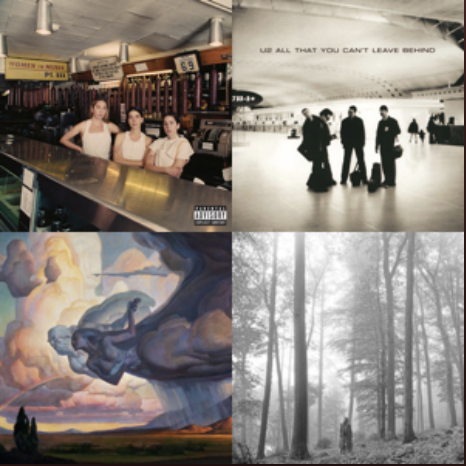My all-time favorite radio listening experience was on the University of Massachusetts’ FM station, WMUA. It was a weekly four-hour radio show called Dadavision, after the art movement which it attempted to imitate. I listened faithfully every Sunday night, even during the school year when it went well past my bedtime. My mother would come in my bedroom and shut off the radio, but of course I was only pretending to be asleep, and would resume listening again after she left. The hosts of the show weren’t playing music; they were playing, period. What originally hooked me was the humor: a “top ten” countdown of local garage band 45s hosted by a guy pretending to be a psychiatrist, providing a bewildered but hilariously deadpan psychoanalysis of the lyrics. It was absurdist comedy gold, which they did often and very well. But they might follow up that bit with a haunting hour long mashup of classical piano and NASA Apollo landing audio. From absurdity to profundity! And then they might burn the last fifteen minutes of airtime by playing B-movie horror flick trailers.
But what was going on? Were these guys jokers or sound poets? When they wanted to entertain, they were focused and relentlessly creative. Other times it was an aimless mess, as if they literally forgot they had an audience. Sometimes it was hard to tell the difference.
One week when I was looking especially forward to hearing some radio silliness, the host instead served up an hour of straight-up Frank Sinatra. But even Ol’ Blue Eyes, in this context, became thrilling to me. It’s possible that it was because I didn’t want to miss what might be next, but more likely it was because I surrendered completely to the DJ. When my parents played Sinatra, it was predictable and meaningless to me. When a performance art-punk played Sinatra it was countercultural and thrilling. Radio wasn’t just an advertising platform. It felt like an adventure.
You choose the curator, the curator chooses the tunes. Isn’t this the most satisfying way for us to experience music? For years it was the only way: we chose the DJ or the station, and they chose the rotation of singles we would hear. The iPod enabled each of us to be the sole creator—and listener—of our own private radio stations for a while, but the desire for communal experience seems to be experiencing a revival. “Internet-savvy people have fallen head over heels for old-school monoculture,” Billboard wrote recently. It makes sense. For a while now, DJs have been occupying the concert territory once owned by rock bands: Calvin Harris is the new U2. And Apple is now placing its bets on Beats, a familiar “one-to-many” broadcasting format. Looks like radio, smells like radio, you get the picture.
And yet the album, or at least the album-length format, retains a powerful sway over the music community, if only because our attention spans don’t often endure past the 45-minute mark (we never knew ye, Stadium Arcadium). Is there a way to integrate the best of both approaches? Pitchfork recently described the future of music as the album-length playlist, curated by an individual. In other words: a mixtape! But if this is the future, then it’s gotten a good head start on itself, because it exists now. And it’s thriving all over the web, from Beats prototypes like Dublab, to retailer-sponsored mix series like Oki-Ni, to individual knob-twiddlers like Electric Adolescence.
I love experiencing music this way. A good mixtape reminds me of what I loved about college radio: the “you had to be there” quality of it, the unique experience that can’t be replicated on Spotify. A good playlist is as satisfying to me as Kind of Blue, as Sgt. Peppers’, as Kid A. It’s literally a format you can fall in love with; when you’ve got a crush you don’t give them a copy of Yankee Hotel Foxtrot, you make them a mixtape. The industry is finally getting hip to our habits.
I’m not just a listener. I frequently make mixes myself. Here is one from earlier this summer, having vaguely to do with the silly idea that summer should be fun, but not too much fun, because it’s so hot. As a love note to our readers, here are a few of my favorite curated mixes. Some of them nail a particular mood, some reflect a theme, some are just a fresh take on familiar sounds. We encourage you to listen, but also to explore, and to post your own favorites in the comments.
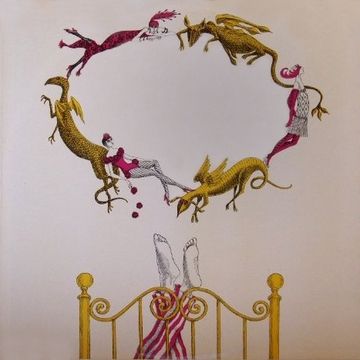
This mix is allegedly credited to a pseudonymous member of The Avalanches, posted on a mysterious mixtape-only site called Pinchy and Friends. The Avalanches’ only full-length, released in 2000, was a modern masterpiece that relied almost solely on samples, so it’s no surprise that the’d have a deep vinyl collection to play with. What makes this an interesting listen is how he includes familiar songs, but not the versions that you’re used to hearing. It plays like a dreamy, idealized version of late-night 1960s radio – bossa nova classics and lounge pop float in the ether with folk harpist Joanna Newsom, blanketed with the comforting crackle of vinyl and dialogue snippets from Michel Gondry’s The Science of Sleep. This mix is the epitome of the singular listening experience – if you can stay awake through the whole thing.
Favorite moment: Mia Farrow’s “Lullaby” from Rosemary’s Baby and the Beach Boys’ narrative piece “Radio King Dom”
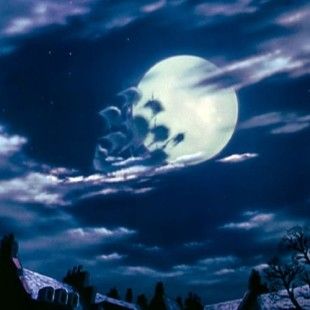
Ever wonder what would happen if you removed all the chipper songs from Disney soundtracks? The Arab Strap’s Aidan Moffat assembled a nightmarish journey through the creepier, more melancholy material from classics like as Peter Pan and The Jungle Book – as well as some tracks that were left off for being “too dark.” I love this purely as a concept, but it’s also brilliantly executed. Sandwiched amid the gloom, even a harmless ditty such as “Scales and Arpeggios” (from The Aristocrats) makes me anxious, as if it is being sung to ward off ghosts. This is a room in the Magic Kingdom that you’ve probably never visited before.
Favorite moment: Moffat’s spacey treatment of “Oh Tink,” from Peter Pan
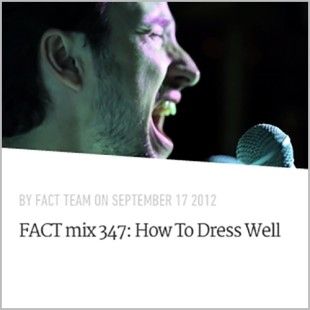
FACT magazine is a UK-based online publication which has featured terrific weekly DJ mixes for more than half a decade now. Not being a proper clubgoer I struggle to connect with the dance-oriented rave-ups, but otherwise there’s plenty to like. I enjoy the collaboration between the Orb and reggae icon Lee “Scratch” Perry, but even better is the mix by How To Dress Well’s Tom Krell. This mix is a perfect example of that genre jokingly dubbed PBR&B: contemporary R&B filtered through a hipster’s lens of longing, heartbreak, lofty ambitions, and echoey lo-fi electronics. Like the Sleepy Time mix, what’s interesting to me is the mix of the familiar and the unfamiliar, as in the inclusion of the raw-ish demo of Beyonce’s “Halo.”
Favorite moment: When the climactic guitar solo from Prince’s “Purple Rain” suddenly materializes out of nowhere.
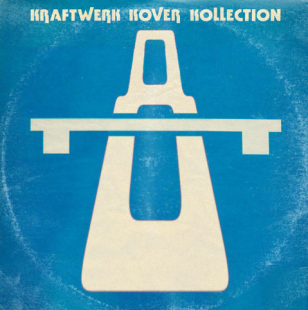
Kraftwerk is an easy band to like: they’re acknowledged as the fathers of modern electronic dance music, but their strong sense of melody and their relatively uncluttered sound mean that they’re perfect raw material for DJs to pilfer from. Kraftwerk’s thumbprint on popular music is so large that, in 2004, DJ Food started regularly releasing Kraftwerk-themed mixes containing samples, covers, spoken word snippets, and all kinds of “bits and bobs” from the German music pioneers. They’re all pretty fantastic, but the most recent mix – volume 8! – expands the palette well beyond electronic and hip-hop music: Jazz covers! Bell choirs! Bollywood Kraftwerk! So many different ways to nerd out!
Favorite moment: The sweet violin on Saito Tetsuya’s version of “Computer Love”
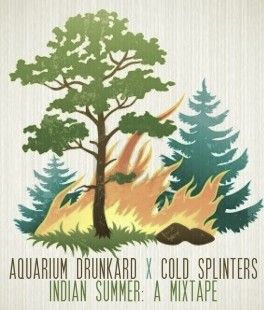
If you’re looking for crate-diggers who focus on folk, psychedelia, soul, and Americana, then Aquarium Drunkard is a reliable place to start. I’m partial to the beautiful Blue August Moon mixtape, but at almost two and a half hours, it might take you until winter to get through it. The themes in this Cold Splinters mix hold together well – going walking, returning home, doing right by your lover, things that just make you slow down and go “aaaah.” And at only 39 minutes it’s refreshingly brief – just like Indian Summer.
Favorite moment: The sweeping guitar on Phil Cook’s “The Jensens”

